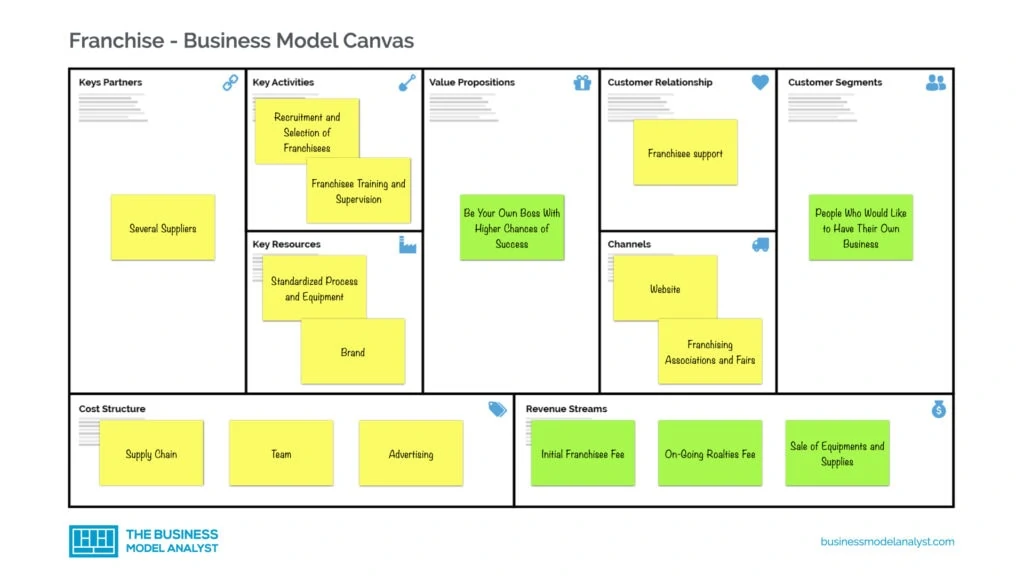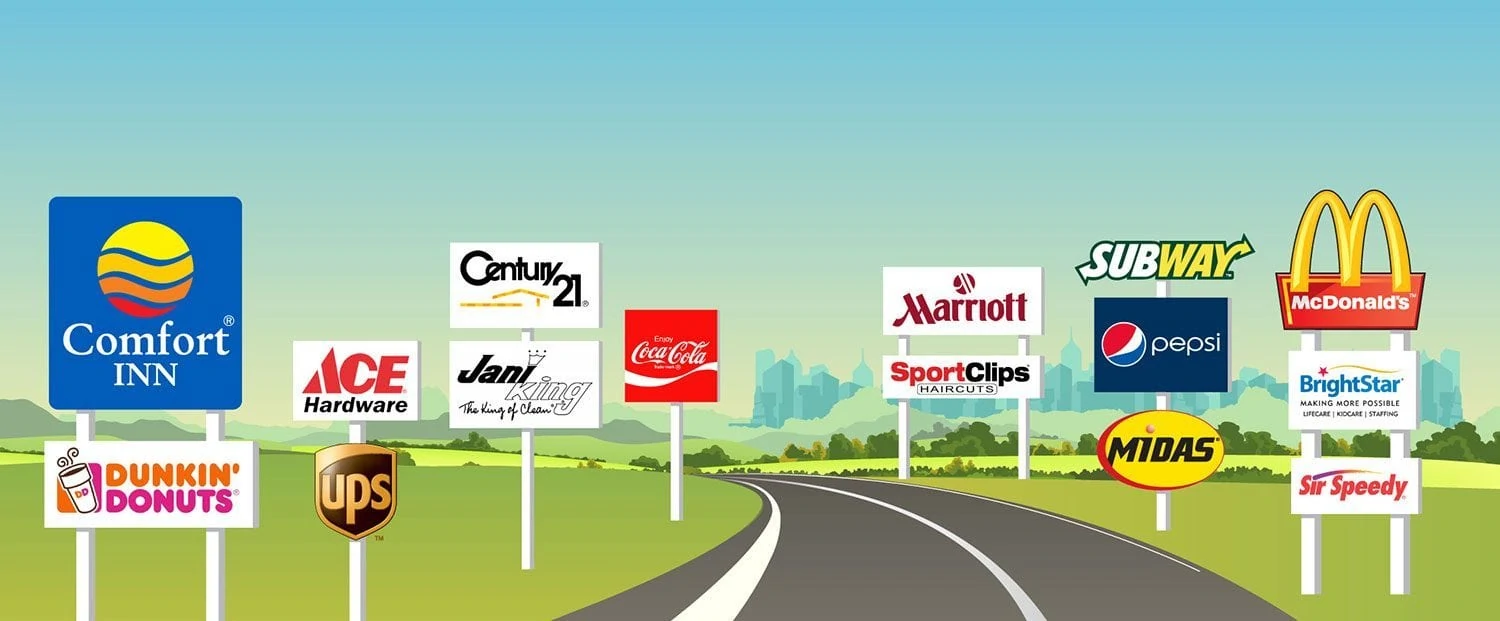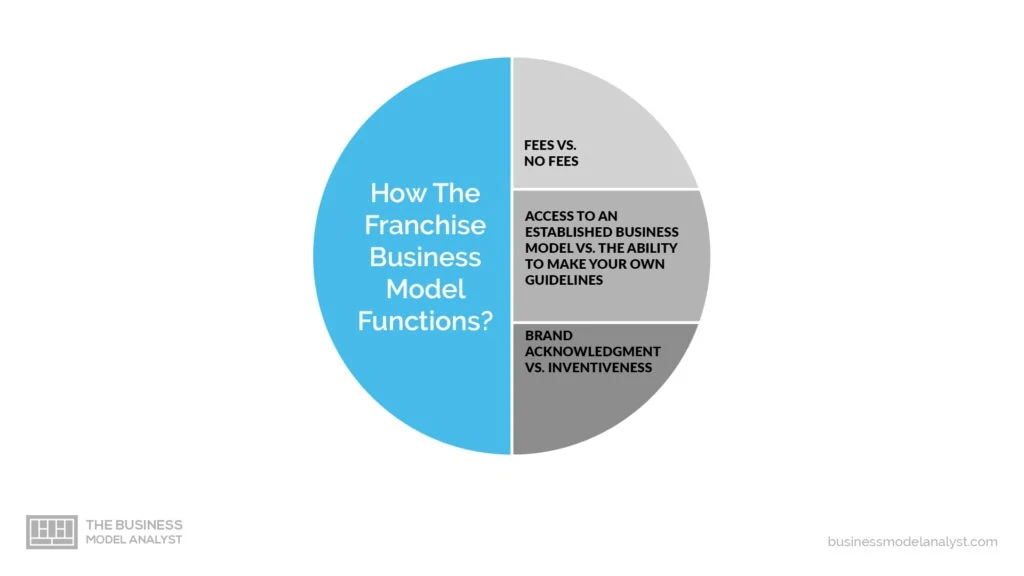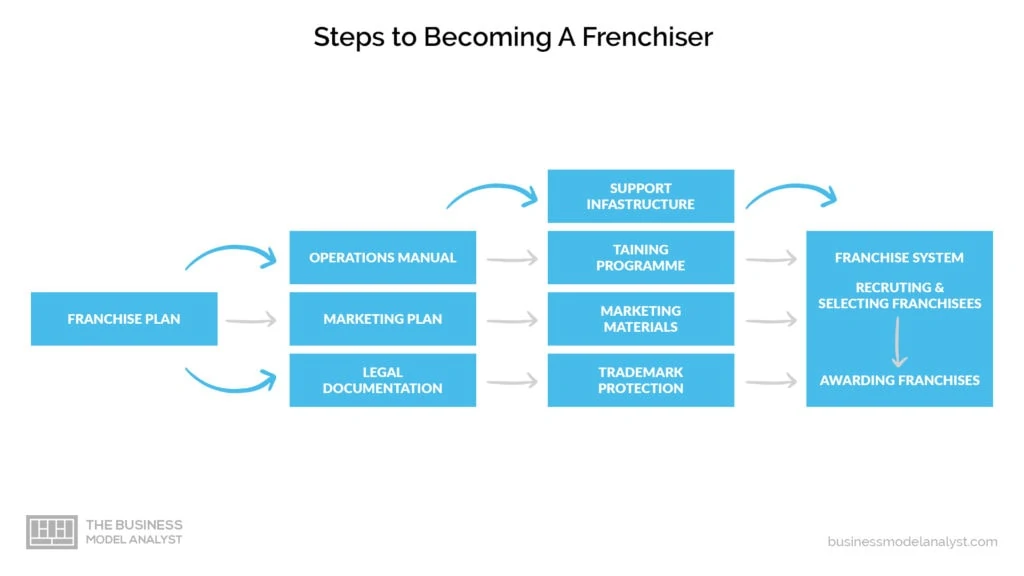The franchise business model is usually the business model chosen by those who want to start a new business, but do not have much idea how to begin it. That is because the franchising system allows you to acquire a ready-made business, with a consolidated brand and know-how already tested. Virtually, you buy a brand and all the processes. That way, since you don’t have to start from scratch, there is no need to test the entire business model from the beginning. You basically invest in a ready-made business and apply its processes and techniques to the location you choose. On the other side, the business owner benefits from not having to invest in new outlets or units. Instead, they distribute their goods or services through licensed sales points, thus increasing their brand presence.
Contents
What is the franchise business model?
The franchise business model is totally based on the relationship between two sides: the franchisor and the franchisee. The franchisor is the person or company that owns the rights to a brand trademark. The franchisee is the one that pays a fee in order to use the franchisor’s trade name and operating systems. This relationship is built on mutual understanding and support. Take a look:
The franchisor
- Sells the rights to franchise their brand;
- Develops the business, with its brand and operations;
- Provides a recognizable trademark;
- Offers training and support;
- Creates a marketing strategy;
- Sometimes mentors the site selection and structure.
The franchisee
- Pays the franchisor a fee that can be an initial or recurrent payment (royalty);
- Operates in accordance with a specified contract;
- Acts as a branch of the franchise company;
- Gains access to an established customer base;
- Benefits from brand recognition;
- Takes advantage of a ready-made business with all its know-how;
- Runs the day-to-day business.
The Franchise Business Model Canvas

A brief history of franchise business model

The franchise business model is not recent. On the contrary, it dates back to the Middle Age and ancient China, when landowners allowed peasants and serfs to do business on their property – such as hunting or selling products at fairs – as long as they paid a kind of tax or commission on business done in their territories. The modern business model franchise is supposed to have started with Benjamin Franklin when he made an agreement with Thomas Whitmarsh to provide printing services in Charlestown, South Carolina, in the year 1731. More than a century later, Isaac M. Singer would again use the franchise business model to distribute his Singer sewing machines. But the model would only become popular after another hundred years, with the appearance of McDonald’s. Nowadays, there are thousands of od franchises all over the world.
Types of franchise business model
There are two types of franchise business models. They are:
Product distribution franchise
In this model, the franchisor is also the manufacturer of the product, which will be sold by the franchisee. It is similar to a supplier-dealer system, however, with the difference that the franchisee must sell that brand exclusively, and cannot resell others simultaneously. For example, John Deere and Ford Motors.
Business Format Franchise
This is the most recurring business model franchise. In addition to using the franchisor’s trade name and brand, the franchisee has access to marketing and sales strategies, distribution and operations systems, as well as training and support. Some examples include Dunkin Donuts and McDonald’s.
The advantages of the franchise business model
For the franchisee
- Quality brand-recognition
- Expert support and training
- Established customer base
- Proprietary technology
- Location assistance
- Operational guidance
- Marketing and advertising
- Access to a network of fellow franchisees
- Shorter time to opening
For the franchisor
- Quick brand expansion – through other people’s money
- Growing without sacrificing control
- Stable revenue stream
- Savings on operational costs
Disadvantages of the franchise business model

The downsides of the franchise business model are more specific to the side of the franchisees. They may include lack of independence on how to run the business, some mandatory national or regional strategies and promotions that may not work in the franchisee’s market, high cost of implementation, and others. Of course, like any other kind of business, there is no guarantee of success in the franchise business model. Sometimes, franchisees believe that, just by following straightly the franchisor’s system and operations, their business will be profitable. Buy that is not actually true. Not everyone is cut out for franchising. It is indeed a business model based on a kind of partnership. So, both sides need to be comfortable about the franchise business model, regarding the company culture, values, goals, mission, etc. Franchising is like a marriage, they must share mutual ideas over the long term, in order to be profitable and successful.
The future of franchise business model

Artificial intelligence will play a bigger role. Probably technology will take over many ordinary tasks that don’t require skilled human resources. It is the case of some fast-food franchises, for example, which have already been using computers to get customers’ orders – sometimes, even remotely. Franchises will grow around the world. Franchises have been rapidly expanding over the planet. Countries that did not exist for some companies, a few years ago, have become new and profitable markets for foreign franchising investments. Remote franchises have become popular. Last but not least, with the advance of technology associated with the coronavirus pandemic, some remote franchises have taken a bigger market share, due to the tendency of working from home.

